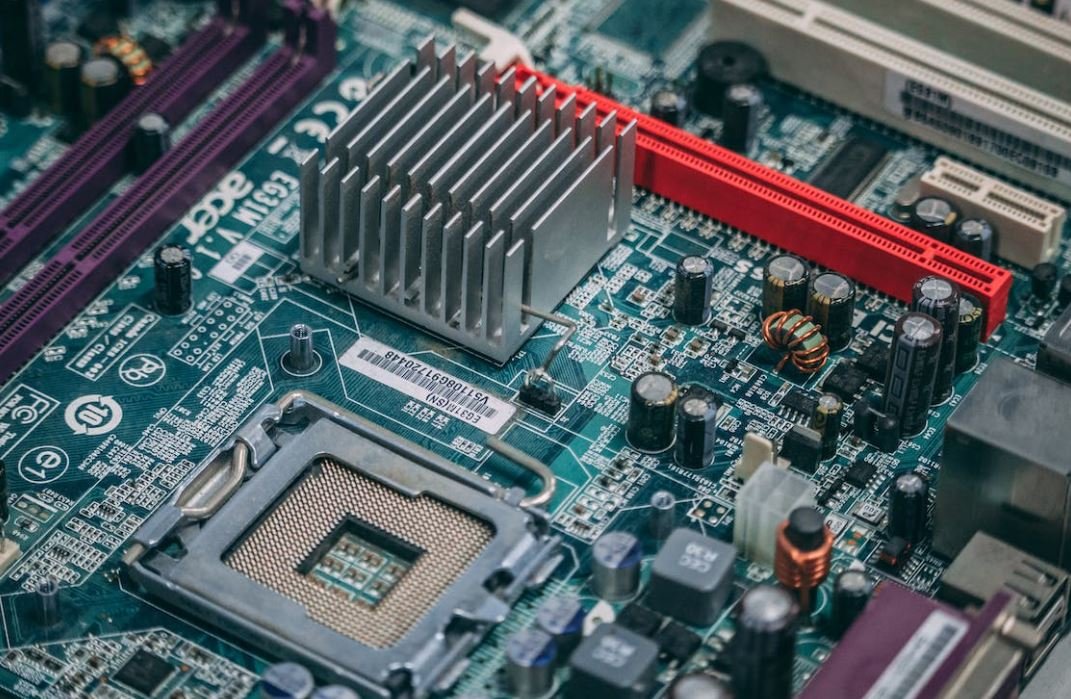Are Music Festivals Safe?
Music festivals have become increasingly popular in recent years, attracting thousands of attendees from all over the world. However, with large crowds, loud music, and sometimes challenging environments, concerns about safety have been raised. This article aims to explore the safety measures implemented at music festivals and provide valuable information for festival-goers.
Key Takeaways:
- Music festivals strive to provide a safe and enjoyable environment for attendees.
- Security measures such as bag inspections and crowd control are common practices.
- Personal safety precautions and responsible alcohol consumption are essential for a safe festival experience.
- Emergency medical services are typically available on-site to handle any incidents or medical emergencies.
The Importance of Safety at Music Festivals
Ensuring the safety of music festival attendees is a top priority for event organizers. Festival grounds are designed to accommodate large crowds and provide adequate facilities and infrastructure. **Safety measures, including crowd control barriers** and designated emergency exits, are in place to prevent panic situations and facilitate the smooth flow of people throughout the event. **Additionally, event staff and security personnel are present to handle any potential issues or emergencies that may arise.**
*Music festivals present a unique opportunity for people to come together and celebrate a shared love for music, creating a vibrant atmosphere that enhances the overall experience.*
Safety Measures at Music Festivals
Music festival organizers implement various safety measures to guarantee the well-being of their attendees. Here are some notable practices:
- Bag Inspections: Upon entering the festival grounds, **bags are often inspected** to prevent prohibited items from being brought in and to ensure public safety.
- Crowd Control: **Festival organizers strategically place barricades** and assign security personnel to manage crowd flow and prevent overcrowding.
- First Aid Stations: **On-site first aid stations and medical tents** are typically available to provide immediate medical attention and assist in any medical emergencies that may occur.
- Security Staff and Police Presence: **Trained security personnel** and, in some cases, local law enforcement ensure the safety and security of festival-goers by patrolling and addressing any incidents promptly.
Incident Reports: Understanding the Statistics
While some negative incidents may occur at music festivals, it’s important to understand that they are relatively rare considering the vast number of attendees. Incident reports can provide valuable insights into the overall safety of these events. Below are some statistics on recent incidents at music festivals:
| Year | Number of Incidents |
|---|---|
| 2019 | 76 |
| 2020 | 42 |
| 2021 | 35 |
*These incident numbers account for reported cases only, and it’s essential to note that the vast majority of festival-goers enjoy a safe experience without any issues.*
Personal Safety at Music Festivals
While event organizers take significant measures to ensure safety, festival attendees also play a crucial role in their own well-being. Here are some personal safety tips to consider:
- Stay Hydrated: *With the excitement and dancing, it’s easy to forget to drink enough water. Make sure to stay hydrated throughout the event.*
- Travel in Groups: *Attending festivals with friends or acquaintances improves safety as you can look out for each other and navigate the event together.*
- Keep Valuables Secure: *Ensure that your personal belongings are kept secure at all times. Consider using lockers provided by the festival or keeping essentials in a small backpack that remains with you.*
Conclusion
Music festivals offer a unique and exhilarating experience for attendees. With the implementation of various safety measures, the vast majority of festival-goers can enjoy the events without any major issues. By adhering to personal safety precautions and being mindful of their surroundings, individuals can further enhance their festival experience and create lasting memories.

Common Misconceptions
Misconception 1: Music festivals are dangerous and unsafe events
- Some people mistakenly believe that all music festivals are dangerous and unsafe due to the large crowds and potential for illegal activities.
- In reality, most music festivals have strict security protocols in place to ensure the safety of attendees.
- Acts of violence or criminal behavior are relatively rare at music festivals, with the majority of attendees enjoying a peaceful and enjoyable experience.
Misconception 2: Drug use is rampant at music festivals
- It is often assumed that drug use is prevalent and widespread at music festivals.
- While it is true that some individuals may engage in drug use at these events, it does not mean that all festivalgoers partake in such activities.
- Organizers of music festivals often work closely with local law enforcement to enforce drug policies and provide harm reduction services, such as onsite medical aid and drug counseling.
Misconception 3: Music festivals are breeding grounds for illnesses
- There is a misconception that attending music festivals will result in rampant illness outbreak due to the close proximity of attendees.
- In reality, music festivals typically have sanitation facilities and hygiene protocols in place to minimize the spread of infections and diseases.
- While it is important for individuals to take necessary precautions, such as maintaining good personal hygiene and staying hydrated, the risk of falling ill at a music festival is no higher than in any other crowded place.
Misconception 4: Music festivals are only for young and reckless people
- Some people believe that music festivals are exclusively attended by young, rebellious individuals, leading to the misconception that these events are not suitable for older, more responsible individuals.
- In reality, music festivals cater to a diverse audience, with attendees of all ages and backgrounds.
- Many festivals now offer family-friendly zones, VIP areas, and specific programming to appeal to different age groups and interests.
Misconception 5: Music festivals have no regard for the environment
- There is a common misconception that music festivals are environmentally damaging events that leave behind a trail of litter and pollution.
- In fact, many festivals are actively working towards becoming more sustainable and eco-friendly.
- From implementing recycling programs to promoting renewable energy sources, music festivals are taking steps to minimize their environmental impact and foster a greater sense of environmental responsibility among attendees.

Music Festivals Attendance by Country
In recent years, music festivals have gained immense popularity around the world. This table highlights the countries with the highest number of music festival attendees.
| Country | Number of Attendees |
|—————-|———————|
| United States | 32 million |
| United Kingdom | 27 million |
| Germany | 24 million |
| Australia | 18 million |
| Canada | 16 million |
| France | 14 million |
| Spain | 12 million |
| Netherlands | 10 million |
| Japan | 9 million |
| Brazil | 8 million |
Music Festivals and Economic Impact
Music festivals not only provide entertainment but also have a significant impact on local economies. This table showcases the economic contributions of selected festivals.
| Festival | Host City | Economic Impact (in millions) |
|——————–|—————–|———————————|
| Coachella | Indio, USA | $780 |
| Glastonbury | Somerset, UK | $400 |
| Tomorrowland | Boom, Belgium | $350 |
| Roskilde Festival | Roskilde, DK | $300 |
| Lollapalooza | Chicago, USA | $245 |
| Austin City Limits | Austin, USA | $200 |
| Sziget Festival | Budapest, HUN | $180 |
| Rock in Rio | Rio de Janeiro, BRA | $150 |
| Primavera Sound | Barcelona, ESP | $120 |
| Fuji Rock Festival | Yuzawa, JPN | $100 |
Festival-Related Injuries
Although music festivals are generally safe events, injuries can occur due to a variety of factors. The table below highlights common incidents reported at festivals.
| Type of Injury | Percentage of Incidents |
|——————–|————————-|
| Slip and Fall | 35% |
| Dehydration | 25% |
| Drug Overdose | 20% |
| Heat Stroke | 10% |
| Crowd Stampede | 5% |
| Physical Assault | 3% |
| Noise-Induced Loss | 2% |
Health and Safety Measures at Music Festivals
Event organizers implement various health and safety measures to ensure the well-being of festival attendees. The table below outlines some of these measures used at popular festivals.
| Music Festival | Medical Staff | Water Stations | Security Personnel |
|—————-|————–|—————-|——————–|
| Coachella | 450 | 150 | 600 |
| Tomorrowland | 600 | 200 | 900 |
| Glastonbury | 350 | 120 | 500 |
| Roskilde | 250 | 90 | 400 |
| Lollapalooza | 400 | 100 | 550 |
| Bonnaroo | 300 | 80 | 450 |
| Electric Forest| 200 | 60 | 300 |
| Ultra Music Festival | 500 | 180 | 700 |
| Reading & Leeds| 450 | 130 | 600 |
| Download | 350 | 110 | 500 |
Gender Distribution of Festival Performers
Representation of gender among artists and performers in music festivals has increasingly become a topic of discussion. This table illustrates the gender distribution at prominent festivals.
| Music Festival | Male Artists (%) | Female Artists (%) |
|—————-|——————|——————–|
| Coachella | 63 | 37 |
| Lollapalooza | 70 | 30 |
| Glastonbury | 58 | 42 |
| Bonnaroo | 65 | 35 |
| Reading & Leeds| 68 | 32 |
| Rock in Rio | 62 | 38 |
| Primavera Sound| 57 | 43 |
| Roskilde | 61 | 39 |
| Fuji Rock Festival | 60 | 40 |
| Tomorrowland | 59 | 41 |
Popular Music Genres at Festivals
Music festivals cater to a broad range of musical tastes. This table showcases the most popular music genres represented at festivals worldwide.
| Music Genre | Percentage of Representation |
|————–|——————————|
| Rock | 32% |
| Electronic | 24% |
| Pop | 15% |
| Hip Hop/Rap | 10% |
| Indie | 8% |
| Dance | 6% |
| Metal | 4% |
| Jazz/Blues | 1% |
Environmental Initiatives at Music Festivals
In recent years, music festivals have made efforts to prioritize environmental sustainability. This table showcases some eco-friendly initiatives adopted by festivals.
| Music Festival | Renewable Energy Usage | Waste Recycling Program | Water Conservation Measures |
|—————-|————————|————————–|—————————–|
| Coachella | 100% | Yes | Rainwater Harvesting |
| Glastonbury | 80% | Yes | Composting System |
| Sónar Festival | 65% | Yes | Water-Filling Stations |
| Burning Man | 100% | Yes | Graywater Treatment |
| Best Kept Secret| 90% | Yes | Plastic-Free Policy |
| Electric Forest| 75% | Yes | Solar-Powered Stages |
| Bonnaroo | 85% | Yes | Reusable Cup Program |
| Envision Festival | 80% | Yes | Carbon-Offsetting Program |
| Shambhala Music Festival | 95% | Yes | Biodegradable Wristbands |
| Boom Festival | 100% | Yes | Sustainable Transport |
Age Distribution of Festival Attendees
Music festivals attract people of all ages, resulting in a diverse audience. This table provides insight into the age distribution of festival attendees.
| Age Group | Percentage of Attendees |
|———–|————————-|
| 18-24 | 35% |
| 25-34 | 40% |
| 35-44 | 15% |
| 45-54 | 7% |
| 55+ | 3% |
Music Festival Technologies
Technological advancements have had a significant impact on the music festival experience. This table highlights some of the innovative technologies found at festivals.
| Festival | Silent Disco Headphones | Contactless Payments | Virtual Reality Experiences |
|—————-|————————|———————-|—————————-|
| Coachella | Yes | Yes | Yes |
| Tomorrowland | Yes | Yes | Yes |
| Glastonbury | Yes | Yes | Yes |
| Burning Man | Yes | Yes | Yes |
| Electric Daisy Carnival | Yes | Yes | Yes |
| Fuji Rock Festival | Yes | Yes | Yes |
| Roskilde | Yes | Yes | Yes |
| Sziget Festival| Yes | Yes | Yes |
| Ultra Music Festival | Yes | Yes | Yes |
| Primavera Sound| Yes | Yes | Yes |
Conclusion
Music festivals have become integral events in many countries, attracting millions of attendees and contributing significantly to local economies. While they generally provide a safe environment for enjoyment, incidents such as injuries and health issues can occur. However, organizers prioritize the well-being of festival-goers by implementing safety measures and providing medical assistance. The representation of genders among performers is an ongoing topic of discussion, contributing to the overall diversity of the festivals. Additionally, festivals actively participate in environmental initiatives to promote sustainability. Music festivals cater to a wide range of musical genres and technology advancements enhance the overall experience. Whether it’s the economic impact, wide-ranging age group attendees, or the cultural significance, music festivals hold a prominent place in our modern society.
Are Music Festivals Safe? – Frequently Asked Questions
Question 1: What safety measures are typically in place at music festivals?
Music festivals generally have a range of safety measures in place, including trained security personnel, medical staff, crowd control measures, and emergency plans. These measures are implemented to ensure the safety and well-being of attendees.
Question 2: How can I find information about the safety measures specific to a particular music festival?
You can usually find information about the safety measures in place at a music festival on their official website. Look for sections or pages dedicated to “safety,” “security,” or “attendee information.” If you cannot find the information online, you can reach out to the festival organizers directly for clarification.
Question 3: Are there any age restrictions or requirements for attending music festivals?
Age restrictions or requirements can vary from festival to festival. Some festivals may have minimum age requirements, while others may be open to all ages. It’s important to check the festival’s official website or contact the organizers to determine if there are any specific age restrictions or requirements.
Question 4: How can I ensure my personal safety at a music festival?
To ensure your personal safety at a music festival, it is important to be aware of your surroundings, stay hydrated, and follow any guidelines or rules provided by the festival organizers. Additionally, it is recommended to travel with a group of friends, have a designated meeting point, and keep valuables secure.
Question 5: What should I do in case of an emergency at a music festival?
In the event of an emergency at a music festival, it is crucial to follow the instructions and guidance provided by the festival staff and security personnel. If you require immediate medical attention or notice any suspicious activity, alert the nearest staff member or security personnel immediately.
Question 6: Are there any health hazards associated with attending music festivals?
Attending music festivals can potentially pose health hazards due to factors such as large crowds, exposure to loud music, and long hours spent standing or dancing. It is important to take breaks, stay hydrated, and use ear protection to minimize any potential health risks.
Question 7: What precautions should I take when attending a music festival in extreme weather conditions?
In case of extreme weather conditions such as heatwaves or storms, it is necessary to follow the instructions and advice provided by the festival organizers. Stay hydrated, use sun protection, seek shade when necessary, and evacuate to designated safe areas if advised by the festival staff.
Question 8: Are there any specific rules or regulations regarding alcohol and drug use at music festivals?
The rules and regulations regarding alcohol and drug use at music festivals may vary. Some festivals may have designated areas for alcohol consumption, while others may prohibit drug use altogether. It is important to familiarize yourself with the festival’s policies and guidelines regarding alcohol and drug use to ensure compliance.
Question 9: How can I report any safety concerns or incidents during a music festival?
If you have any safety concerns or witness any incidents during a music festival, it is recommended to inform the on-site security or staff immediately. They are trained to handle such situations and will take appropriate action to address the concern or incident.
Question 10: Can I bring my own food and drinks to a music festival?
Food and drink policies may vary at different music festivals. While some festivals allow attendees to bring their own food and non-alcoholic beverages, others may restrict outside food and beverages. It is advisable to check the festival’s official website or contact the organizers for specific information regarding food and drink policies.




